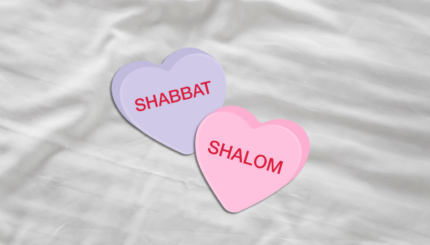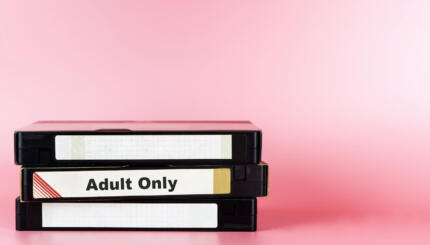In this post from Kveller, Elana Altzman reflects on her family’s journey when her oldest son came out. You can read the post in its entirety here.
The conversation over Shavuot lunch at a friend’s house three years ago started innocently enough—we were talking about the Israeli Rabbinate’s reluctance to provide kosher supervision to food served at non-Orthodox events in Israeli hotels. One of the guests at the meal responded with, “The rabbis have to control who comes in. What if homosexuals come in?”
Like me, this guest was a mother of four sons, an immigrant who came here as a young girl, a woman who did not grow up observant, but became observant as a young adult. Our kids were close in age. Perhaps these similarities made her comment even more shocking to me. Like her, I love my children and care about their happiness, education, and religious commitment. Unlike her, I have a gay son.
My oldest had came out to us a few months before, at the end of his sophomore year in high school. At 16, he was secure enough to come out first to two of his closest friends, then to us, and then to all his friends outside of our community.
But in our neighborhood and our shul in Brooklyn, he remained completely closeted, and knew his chances of being accepted, or even allowed to remain in the shul he grew up in, were slim. He tested the waters some, mentioning that a friend from a summer program was gay, an acquaintance was a lesbian. A neighborhood friend told him gays are disgusting. Another informed him he would burn in hell for being friends with a lesbian girl. An adult leader of the youth minyan, where my son lead services and read Torah regularly, railed against the lifting of “Don’t Ask Don’t Tell” one Shabbat morning, as part of his discussion of the weekly Torah portion, telling the kids in attendance that homosexuality would lead to the downfall of our society. Another adult shul member told him that someone like him, a teen who was accepting of gays, did not belong in the shul we had been members of for over a decade.
How much worse would it be if he were out as gay himself? We feared the repercussions on all our children, the emotional trauma that would result when our son would be rejected by the community he grew up in. That Shavuot conversation reaffirmed our fears. Our son quickly said goodbye and left the holiday lunch; our younger kids were playing, and my husband and I were thankful that they were unaware of the conversation.
Read the post in its entirety at Kveller.
Like this post?
- Join the conversation through MyJewishLearning’s weekly blogs newsletter.
- Get breaking LGBTQ Jewish news, resources and inspiration from Keshet in your inbox!
kosher
Pronounced: KOH-sher, Origin: Hebrew, adhering to kashrut, the traditional Jewish dietary laws.
Shabbat
Pronounced: shuh-BAHT or shah-BAHT, Origin: Hebrew, the Sabbath, from sundown Friday to sundown Saturday.
Shavuot
Pronounced: shah-voo-OTE (oo as in boot), also shah-VOO-us, Origin: Hebrew, the holiday celebrating the giving of the Torah at Mount Sinai, falls in the Hebrew month Sivan, which usually coincides with May or June.
shul
Pronounced: shool (oo as in cool), Origin: Yiddish, synagogue.
Torah
Pronunced: TORE-uh, Origin: Hebrew, the Five Books of Moses.


